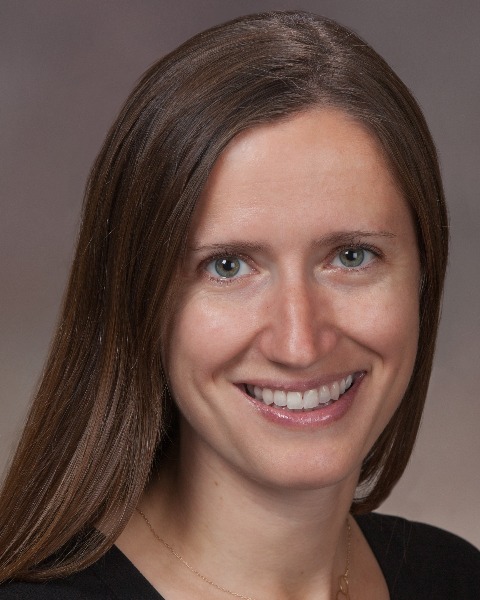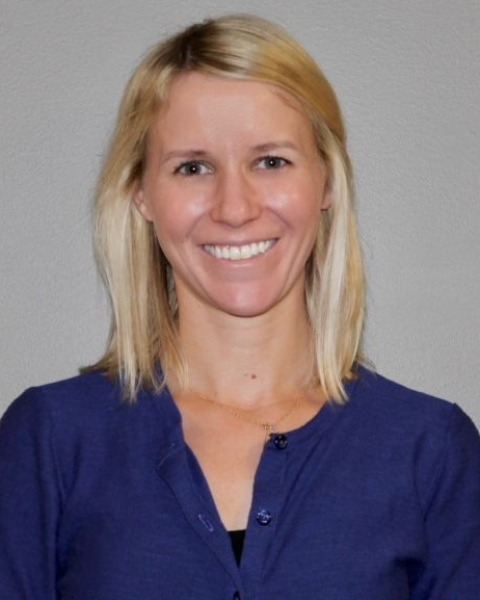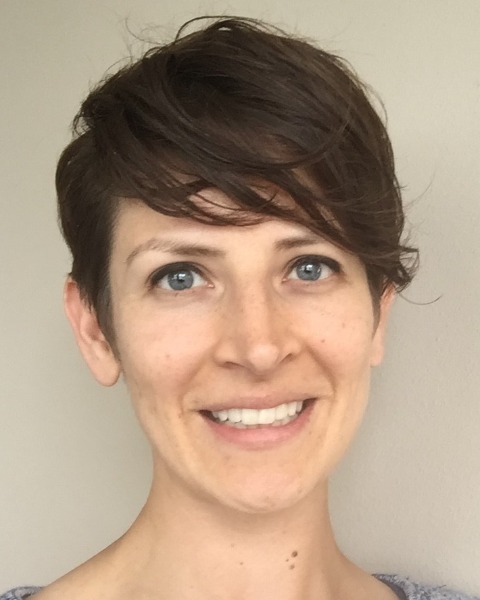Age-Friendly Health Systems (AFHS) Development in PALTC
1.50 CME / 1.50 CMD Management / 1.50 MOC
Our inter-professional team is involved in an AFHS pilot program for PALTC and will share our experiences in improving care in the 4M’s (what matters, medication, mentation, and mobility). We will outline our evidence-based approach at identifying, tracking, and improving clinically relevant quality improvement measures. We will review cycles of plan, do, study, act (PDSA) and how these can lead to sustainable practice changes. Topics will include delirium, depression, dementia, mobility, medications, and how to address what matters in long-term care.
Presenters
 Emily Morgan, MD, attended the University of Oregon and earned a B.S. in General Science. She then attended OHSU medical school and stayed on to complete her internal medicine residency, followed by a fellowship in geriatrics. She joined the Internal Medicine and Geriatrics Department at OHSU as a geriatric primary care and consult physician in 2015. In addition to her outpatient work, she became medical director of Mirabella Portland’s skilled and long term care facility in 2017, and now heads the OHSU Internal Medicine skilled and long term care program.
Emily Morgan, MD, attended the University of Oregon and earned a B.S. in General Science. She then attended OHSU medical school and stayed on to complete her internal medicine residency, followed by a fellowship in geriatrics. She joined the Internal Medicine and Geriatrics Department at OHSU as a geriatric primary care and consult physician in 2015. In addition to her outpatient work, she became medical director of Mirabella Portland’s skilled and long term care facility in 2017, and now heads the OHSU Internal Medicine skilled and long term care program.
 Kate Edstrom, AGNP-C, earned her BSN from Seattle University in 2010 and DNP from University of Washington in 2019. She joined the Internal Medicine and Geriatrics department at Oregon Health and Science University in 2019 as an adult gerontology nurse practitioner and currently works in the PALTC setting.
Kate Edstrom, AGNP-C, earned her BSN from Seattle University in 2010 and DNP from University of Washington in 2019. She joined the Internal Medicine and Geriatrics department at Oregon Health and Science University in 2019 as an adult gerontology nurse practitioner and currently works in the PALTC setting.
 Briana Kjornes, PA-C, received her Masters of Physician Assistant Studies from Oregon Health and Science University (OHSU) in 2013. After working for three years as a rural Primary Care Provider she returned to her alma mater, joining the Geriatric Division at OHSU as a Clinical Instructor. Currently, her clinical practice is located in a Skilled Nursing Facility in Portland, Oregon. She also participates in the education of OHSU PA-Students and Internal Medicine Interns in the Skilled Nursing Facility setting.
Briana Kjornes, PA-C, received her Masters of Physician Assistant Studies from Oregon Health and Science University (OHSU) in 2013. After working for three years as a rural Primary Care Provider she returned to her alma mater, joining the Geriatric Division at OHSU as a Clinical Instructor. Currently, her clinical practice is located in a Skilled Nursing Facility in Portland, Oregon. She also participates in the education of OHSU PA-Students and Internal Medicine Interns in the Skilled Nursing Facility setting.
Learning Objectives
- Review current quality measures for the PALTC population and how they relate the 4M’s.
- Demonstrate effective use of the PDSA cycle with an interdisciplinary team in achieving quality improvement in PALTC.
- Engage participants in opportunities to implement the 4M’s in PALTC settings.
Credit Information
Activity Created 3/2022
Credits Available Until 3/2025
Credit Statements:
CME: AMDA – The Society for Post-Acute and Long-Term Care Medicine designates this enduring material for a maximum of 1.5 AMA PRA Category 1 Credit(s)TM. Physicians should only claim credit commensurate with the extent of their participation in the activity.
AMDA – The Society for Post-Acute and Long-Term Care Medicine for Post-Acute and Long-Term Care Medicine is accredited by the Accreditation Council for Continuing Medical Education (ACCME) to provide continuing medical education for physicians.
CMD: This self-study activity has been pre-approved by the American Board of Post-Acute and Long-Term Care Medicine (ABPLM) for a total of 1.5 management hours toward certification or recertification as a Certified Medical Director (CMD) in post-acute and long-term care medicine. The CMD program is administered by the ABPLM. Each physician should claim only those hours of credit actually spent on the activity.
ABIM Maintenance of Certification (MOC): Successful completion of this CME activity, which includes participation in the evaluation component, enables the participant to earn up to 1.5 Medical Knowledge MOC points and patient safety credit in the American Board of Internal Medicine’s (ABIM) Maintenance of Certification (MOC) program.
Participants will earn MOC points equivalent to the amount of CME credits claimed for the activity. It is the CME activity provider’s responsibility to submit participant completion information to ACCME for the purpose of granting ABIM MOC credit.
Visit the Continuing Education page for information on if and how you can claim credit/hours for AMDA’s education.
Disclosure Information:
The Society requires the disclosure of all speaker/faculty/planner’s relevant financial relationships; presence of off-label use of a device or medication; and discussion of any experimental, new or evolving topic prior to each accredited education activity.
If the learner perceives any bias toward a commercial product or service, advocation of unscientific approaches to diagnosis or therapy, or recommendation, treatment, or manners of practicing healthcare that are determined to have risks or dangers that outweigh the benefits or are known to be ineffective in the treatment of patients please report this to the Society’s staff.
All relevant financial relationships have been identified, mitigated, and resolved.
- The following AMDA Education Committee members have financial relationships to report: Diane Sanders-Cepeda, DO, CMD — UHC E&I Retiree Solutions: Full-Time Employee; all others have no relationships with ineligible companies.
- The speakers have no relevant financial relationships.
- AMDA staff have no relationships with ineligible companies.